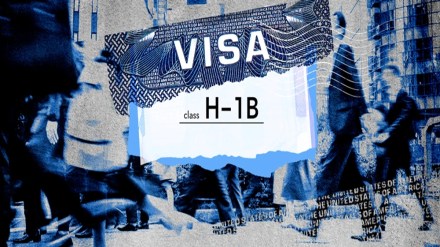DHS proposed a revised rule on September 24, 2025, to modify the H-1B visa lottery process for US employers to hire foreign workers. The last date for sending comments is due on or before October 24, 2025.
As per the proposal listed on the Federal Register, “Written comments on the notice of proposed rulemaking (NPRM) must be submitted on or before October 24, 2025. Written comments on the associated information collections must be submitted on or before November 24, 2025.”
The H-1B 2027 filing season will likely introduce significant changes to the H-1B visa lottery process, implementing a weighted selection process prioritizing higher-skilled and higher-paid foreign workers.
DHS proposes to implement a weighted selection process that would generally favor the allocation of H-1B visas to higher-skilled and higher-paid foreign workers, while maintaining the opportunity for employers to secure H-1B workers at all wage levels, to better serve the Congressional intent for the H-1B program.
This rule changes the lottery from a random selection process to a weighted selection process, favoring workers who are paid more.
USCIS would weigh and select each unique beneficiary as follows:
- A beneficiary (or petition) assigned to wage level IV would be entered into the selection pool four times,
- A beneficiary (or petition) assigned to wage level III would be entered into the selection pool three times,
- A beneficiary (or petition) assigned to wage level II would be entered into the selection pool two times,
- A beneficiary (or petition) assigned to wage level I would be entered into the selection pool one time.
According to the Office of Advocacy of the US Small Business Administration, in FY 2024, 17,069 small entities filed H-1B visas that were subject to this lottery process.
This rule could impact small businesses that may not receive their workers if they are paid in Level I, as the probability of being selected is lowered by 42 percent. USCIS estimates that some small entities that filed H-1B petitions at wage Level I would incur costs of approximately $85,006, the lost labor of one worker at this salary level.
Under the existing H-1B registration process, prospective petitioners (also known as registrants) seeking to file H-1B cap-subject petitions must first electronically register for each prospective beneficiary.
USCIS then runs the H-1B selection process to randomly select unique beneficiaries based on properly submitted electronic registrations. If the unique beneficiary is randomly selected, then each registrant that registered for that beneficiary receives a registration selection notice and may file an H-1B cap-subject petition on their behalf.
DHS proposes to amend the process through which it selects registrations for unique beneficiaries to move away from a purely random selection process to a weighted selection process.
The biggest impact of the new H-1B rules would be on the low-skilled, low-salary foreign workers. H-1B visa approval chances can fall 48% for low-salary foreign workers under the new wage-based selection process.
However, the projections show that the percentage change in probability of being selected to file H-1B cap-subject petitions from the current to the proposed selection system would increase by 3%, 55% and 107% for Level II, Level III, and Level IV, respectively.
U.S. Tech Workers on X posted, “We see this as wrongheaded because USCIS is simply replacing a lottery with a raffle. What they should be working on is a process that prioritizes employers prepared to pay the highest wage.
We concluded our comment by stating. . .adopting a regulation that prioritizes high worker salaries for handing out H-1B visas would be a better alternative than the current proposed rule change for American white-collar/professional workers. If the proposed rule change cannot accommodate a wage-based H-1B selection process, we recommend that this proposed rule change be abandoned.”
